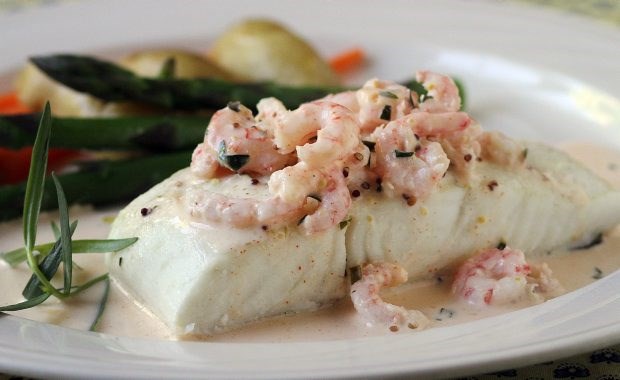What is the reason behind reducing the liquid to half when using wine?
Zelie Scurrah
When I make cream sauce with wine, it always separates, curdles. What am I doing wrong?
Helen
A I decided to answer both questions in one go as the topics are related. Helen is one of several readers who sent in queries wondering why their cream sauce, a sauce made by reducing and thickening whipping or heavy cream, curdles when wine is part of the mix.
If you've cooked a beef roast and want to make a wine-flavoured sauce to serve with it, some recipes will ask you to pour wine into the roasting pan and simmer and reduce it by a certain amount, such as a half.
One reason you do that is to help lift off any tasty brown bits stuck to the bottom of the pan. But the main reason you want to reduce the wine before finishing the sauce with its other ingredients is to transform its taste.
In the book, The Elements of Cooking, author Michael Ruhlman writes that the heady effect of alcohol is not desirable in food. Ruhlman says things such as wine need to be cooked off, which will lower its alcohol content and deliciously concentrate its flavour.
When making a cream sauce the wine is "cooked off" for the same reasons. Also, and more importantly, if you simply brought some white wine to a simmer, added whipping cream and tried to reduce and thicken it into a sauce it will likely curdle because of the wine's higher alcohol content and acidity. Cooking and reducing the wine alters its composition, allowing you to then add and simmer whipping cream without fear it will curdle.
In Harold McGee's fine book, On Food and Cooking: The Science and Lore of the Kitchen, he writes that light creams are poured into coffee or onto fruit; heavy creams are whipped or used to thicken sauces. McGee says that the surface membrane of fat globules found in cream with a high fat content, such as whipping cream, seem to have the ability to latch onto a certain amount of the major protein found in it, cassien, preventing it from curdling, even when simmered.
In many cookbooks you will find white sauces based on lower-in-fat milk or light cream that are flavoured with reduced wine.
The reason they don't separate is because they are thickened with such things as a roux (a mix of flour and fat, such as butter), which helps to hold the fat globules in the milk or light cream together.
With regard to what type of wine to cook with, the book, Clueless About Wine, says that if it doesn't taste good in the glass, don't use it. Its bad flavour will only get worse once heated and concentrated.
I used a B.C. chardonnay in the divine sauce that adorns today's halibut recipe.
BAKED HALIBUT WITH WINE, TARRAGON AND SHRIMP SAUCE
I served this fine fish dish with mini potatoes, asparagus and carrots.
Preparation time: 10 minutes
Cooking time: 15 to 18 minutes
Makes: 4 servings
4 (6 oz.) halibut fillets
2 Tbsp melted butter
- salt and white pepper to taste
1/2 cup dry white wine
1 garlic clove, minced
1 cup whipping cream
1/4 tsp paprika
100 grams cooked salad shrimp
1 Tbsp chopped fresh tarragon
1 Tbsp whole grain Dijon mustard
Preheat oven to 375 F. Place the halibut in a parchment paper-lined baking dish. Brush with the melted butter; season with salt and pepper. Bake the fish for 15 to 18 minutes, or just cooked through.
Meanwhile, place the wine and garlic in a medium-sized pot and bring to a simmer; simmer until the wine has reduced by half. Add the cream and paprika, bring back to a simmer and reduce the mixture until a lightly thickened sauce forms.
Stir in the shrimp, tarragon and mustard; season with salt and white pepper. Reserve the sauce on low heat. When the halibut is cooked, set a piece on each of 4 plates. Spoon over the sauce and serve.
Eric Akis is the author of the recently published Everyone Can Cook Slow Cooker Meals.



